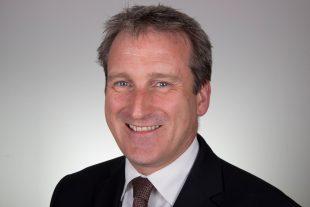Education Secretary warns of the dangers of #FakeNews

School leaders must be alert to the dangers of ‘fake news’ and the risks posed to pupils, the Education Secretary has warned.
Mr Hinds, who will today attend a Social Media and Online Harms Summit alongside fellow cabinet member Health Secretary Matt Hancock, is seeking to equip pupils across the country with the skills they need to recognise ‘fake news’ or disinformation, which can destroy trust, damage learning culture, and sap curiosity.
The warning comes after the Department for Education has published online safety guidance for schools, which includes teaching children how to evaluate what they see online, how to recognise techniques used for persuasion, how to identify online risks and how and when to seek support. It will enable them to recognise and respond to ‘fake news’ more effectively and to differentiate between misinformation and disinformation.
Education Secretary Damian Hinds said:
“The internet puts a vast amount of information at our fingertips. But it also makes it much easier to spread falsehoods – inadvertently or by design.
“Today we will be addressing with social media companies how to curb the spread of misleading content on vaccinations. But this issue goes much further than that, and without firm action it is set to get a lot worse.
“The reputations of institutions and companies, and liberal democracy itself, can quickly be eroded by the spread of so-called ‘fake news’. Since ancient times, propagandists have sought to manipulate the truth. But in the internet age these techniques are available not just to states but to campaign groups and individuals. And social media’s network effects, and the power of ‘Likes’, mean their spread can be self-propelling.
“What starts as disinformation – deliberate falsification – gets replicated through misinformation – stating or passing on something that you believe to be true but isn’t.
“Trusted sources become more important than ever. For health information, clearly that means the NHS. For news, young people will have to work out their own preferred sources, but the important thing is to be discerning.
“We need the tech companies to make that easier – but we also need to ensure that young people are new-media-savvy. That’s why we are introducing new content to schools that is a fusion of the Relationships, Citizenship and Computing curricula. Children won’t just learn about what a spoofer or a sock-puppet are, or how clickbait headlines try to lure you in. They’ll learn about how so-called confirmation bias helps stories spread, and discuss why someone might want to bend the truth in the first place.”
From 2020, the Government is making health education – which includes content on physical and mental wellbeing– universally compulsory, alongside introducing compulsory relationships education for primary age pupils and relationships and sex education at secondary age pupils. This will mean every child will learn about internet safety and harms alongside the importance of mental wellbeing.
Pupils will be taught about internet safety at various different parts of the curriculum, including Citizenship at Key Stage 3 and Key Stage 4, Computing and in the new Relationships, Sex and Health Education curriculum.
The Social Media and Mental Health Summit, is a strategic partnership between Government and stakeholders who meet regularly on a range of issues that stem from internet usage. At today’s meeting, anti-vaccination will be on the agenda, including a discussion on the social media trends and the barriers to action in this area.
Mr Hinds will say, through the introduction of health education, pupils (at both primary and secondary) will be taught the facts and science relating to allergies, immunisation and vaccination.
Teaching Online Safety in Schools was published on 26 June and can be found here.
We are introducing compulsory Relationships Education for all primary pupils and compulsory Relationships and Sex Education (RSE) for all secondary pupils, from September 2020. Health Education will also be compulsory for all pupils in state funded schools (since PSHE is already compulsory for pupils at independent schools that are not academies).
We are committed to supporting schools to teach these subjects to a high standard from September 2020. Many schools are already teaching parts of these subjects, for example through PSHE, and will be able to adapt to the new requirements quite quickly. We have already seen significant uptake through our early adopters programme, which is encouraging schools to start teaching these subjects from September 2019.











Responses